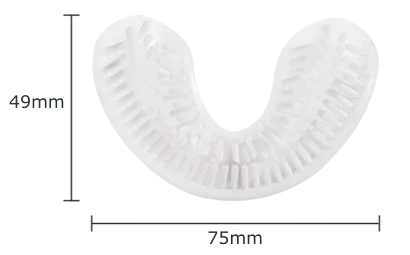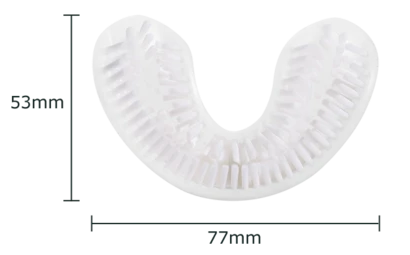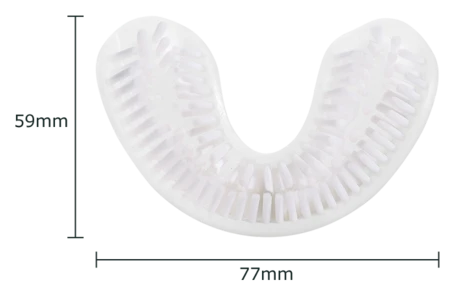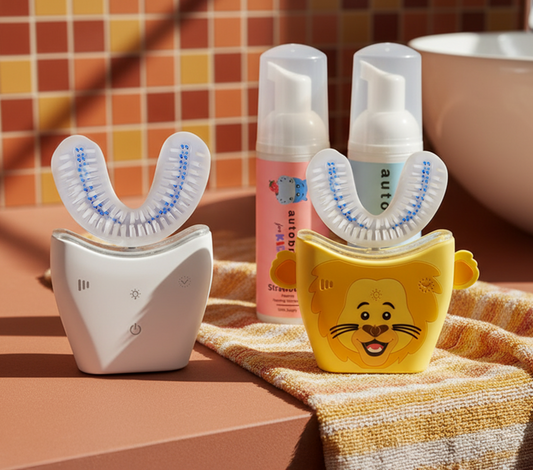
What Causes Sensitive Teeth and How to Manage It
Tooth sensitivity can be a real pain—literally. For many, a sip of hot coffee or a bite of ice cream is enough to trigger discomfort. But why does this happen, and what can you do about it?
This guide will explain the causes of sensitive teeth, covering issues like worn enamel and gum recession. You'll also find practical tips to help reduce discomfort. With the right knowledge and care, you can reclaim your dental comfort and enjoy your favorite foods again.
Why Are My Teeth So Sensitive?
Tooth sensitivity occurs when certain things, like hot or cold foods, cause pain in your teeth. Even breathing in cold air can sometimes cause a twinge.
It all starts when your enamel, the tooth’s protective layer, wears down. Beneath the enamel lies dentin, which contains tiny pathways leading to the tooth’s nerve. When dentin is exposed, stimuli travel straight to the nerves, causing pain.
To understand sensitivity, it helps to know your tooth’s structure:
- Enamel: The hard outer layer that shields your teeth.
- Dentin: A sensitive layer under the enamel, filled with tiny tubules leading to the pulp.
- Pulp: The inner core containing nerves and blood vessels.
When enamel is compromised—whether by wear, diet, or brushing habits—dentin becomes exposed. This exposure is the primary cause of tooth sensitivity.
Top Causes of Sensitive Teeth
Several factors can lead to sensitivity. Identifying the root cause is the first step toward relief.
| Cause | Description | Solution/Advice |
|---|---|---|
| Enamel Erosion | Enamel protects teeth from sensitivity, but acidic foods and drinks can wear it down, exposing dentin. | Limit acidic foods and rinse your mouth with water afterward. |
| Gum Recession | Gums recede with age or gum disease, exposing tooth roots that lack enamel protection, causing sensitivity. | Practice gentle brushing and regular flossing to maintain gum health. |
| Brushing Too Hard | Aggressive brushing can wear away enamel and irritate gums, leading to sensitivity. | Use a soft-bristled toothbrush and brush with small, circular motions. |
| Bruxism (Teeth Grinding) | Grinding or clenching teeth can wear down enamel and increase sensitivity. | Wear a custom mouthguard to protect teeth and reduce sensitivity. |
| Diet Choices | Frequent acidic or sugary foods can weaken enamel, leading to sensitivity. | Balance your diet with enamel-friendly foods like cheese or milk. |
| Dental Procedures | Fillings, crowns, or teeth whitening can temporarily increase sensitivity. | Use desensitizing toothpaste and consult your dentist if discomfort persists. |
How to Manage and Prevent Sensitive Teeth
The good news? Tooth sensitivity can often be managed with the right care, including:
- Choose a soft-bristled toothbrush to protect enamel.
- Avoid acidic and sugary foods that erode enamel.
- Use a desensitizing toothpaste regularly.
- Brush and floss gently to prevent gum recession.
- Drink water after acidic meals to balance your mouth’s pH.
- Consider a mouthguard if you grind your teeth at night.
When to See a Dentist
If sensitivity persists despite making changes, it’s time to seek professional advice. A dentist can:
- Check for underlying issues like cavities or gum disease.
- Recommend fluoride treatments or dental sealants to strengthen enamel.
- Create a custom plan to address your sensitivity.
Ignoring chronic sensitivity could lead to more significant problems, so don’t hesitate to get it checked out.
The autobrush® Advantage for Sensitive Teeth
If you’re dealing with sensitivity, autobrush® Foaming Toothpaste can make a big difference. This toothpaste comes in two formulas: fluoride and hydroxyapatite (Nano-HAp). It is made to strengthen enamel and protect sensitive teeth. Its soft foam gets between teeth and along the gumline. This makes it ideal for those with sensitivity issues or specific sensory needs.
Pairing this with the autobrush® Sonic U-Shaped Toothbrush can improve your oral care routine. The 58,000 soft nylon bristles and sonic cleaning action ensure a thorough clean without irritating sensitive teeth. Together, these products work to keep your teeth strong and pain-free.
Taking Control of Your Dental Health
Tooth sensitivity doesn’t have to control your life. By understanding its causes and making proactive changes, you can enjoy a healthier, pain-free smile. Regular dental check-ups and consistent care are your best allies in keeping sensitivity at bay.
Remember, small adjustments in your routine can make a big difference. Embrace these tips, and your teeth will thank you!












